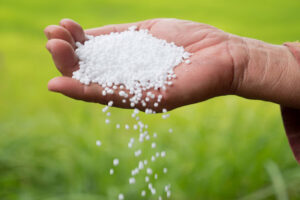Nutritional Safety For Feeding Urea
28 May 2020The shortage of protein feeds such as distiller’s grains and high cost of supplementing protein may make urea seem an attractive alternative for supplementing rations. Urea has been successfully used in rations for over 70 years, however when using urea some caution is required.

Urea is a non-protein nitrogen compound; this means the nitrogen portion of urea is used by the rumen bugs as the building blocks for the microbial protein they produce. Feed grade urea contains about 45% nitrogen which is the equivalent of 281% crude protein, although it’s important to note urea does not contain energy, mineral or vitamins. Fertiliser grade urea is not recommended for feeding due to the possibility of contamination from heavy metals.
An energy source is vital for the rumen bugs to be able to effectively use urea as a protein source. Therefore, using a carrier such as barley to make a premix with urea is advisable. There are also products on the market that use molasses as a premix with urea, as molasses are good source of ready fermentable energy.
Urea can be toxic if fed at too high a level so it’s important not to overfeed and mixing thoroughly is vital. The level of urea required is low, a maximum level of 0.7% of the overall feed dry matter is advised. If for example you wanted to supplement a suckler cow eating around 10kg of dry matter that equates to 70g of urea in the ration.
Safety tips for feeding urea:
- Thoroughly mix urea with a carrier e.g. barley – urea should not be fed neat
- Ensure it is evenly distributed to avoid any lumps of urea and excessive consumption
- 7% of overall DM should be sufficient. For example a suckler cow eating 10kg of dry matter that equates to 70g of urea in the ration
- The EU regulation states urea should not exceed 30 g urea/ 100 kg liveweight of animal/day (this is the equivalent of 1% of complete feed dry matter). This is the absolute maximum.
- Do not feed to youngstock – suckled calves have a higher demand for true protein
- Generally urea wouldn’t be advised to be mixed with silage however where urea supplementation may be suitable is if the silage has analysed less than 90 g/kg DM (9%) in crude protein, seek advice from a nutritionist to make sure this is done safely
- Mineral and vitamins supplement required
Mary Young, mary.young@sac.co.uk
Sign up to the FAS newsletter
Receive updates on news, events and publications from Scotland’s Farm Advisory Service
